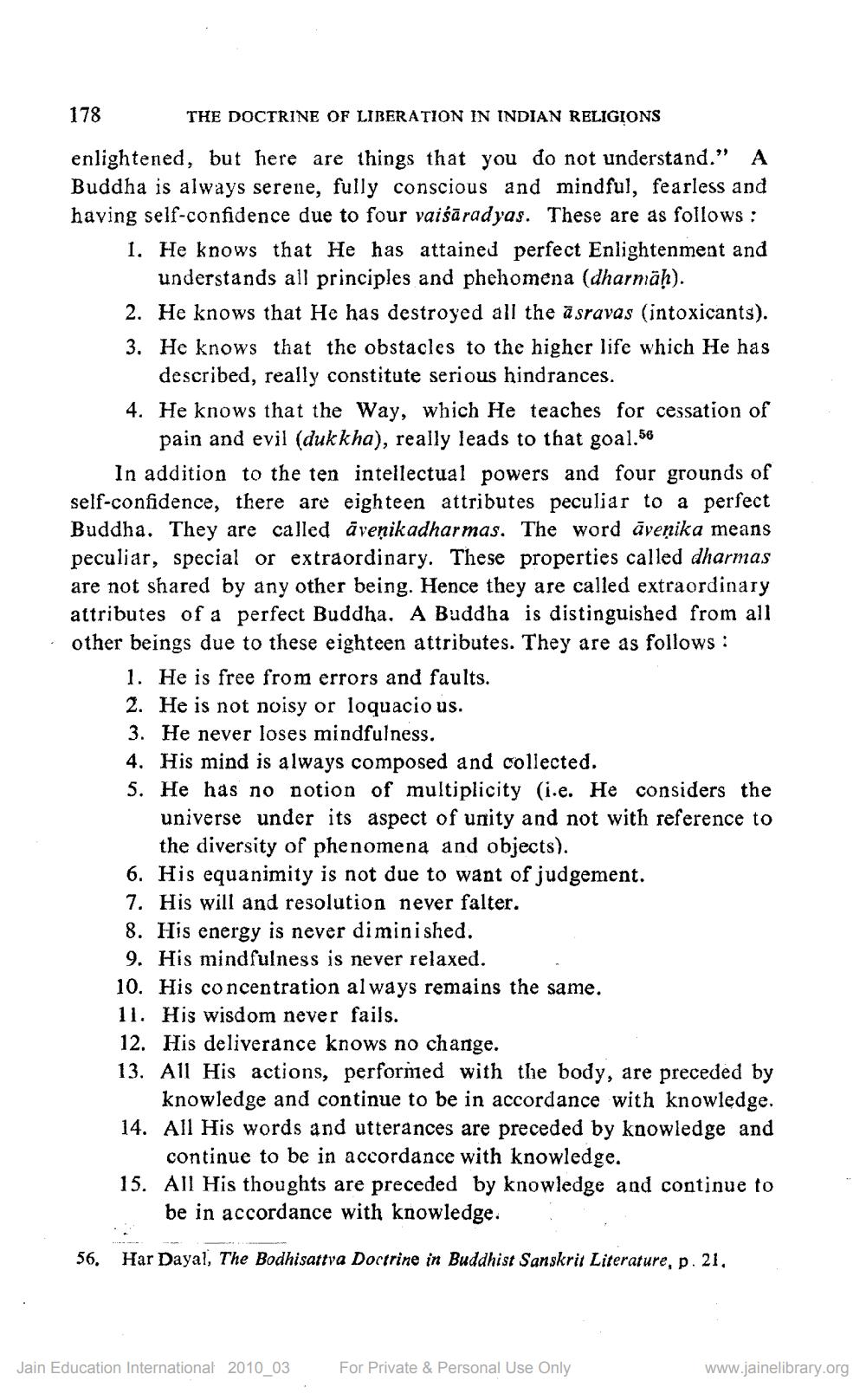________________
178
THE DOCTRINE OF LIBERATION IN INDIAN RELIGIONS
enlightened, but here are things that you do not understand.” A Buddha is always serene, fully conscious and mindful, fearless and having self-confidence due to four vaiśā radyas. These are as follows:
1. He knows that He has attained perfect Enlightenment and
understands all principles and phehomena (dharmāḥ). 2. He knows that He has destroyed all the ā sravas (intoxicants). 3. He knows that the obstacles to the higher life which He has
described, really constitute serious hindrances. 4. He knows that the Way, which He teaches for cessation of
pain and evil (dukkha), really leads to that goal.56 In addition to the ten intellectual powers and four grounds of self-confidence, there are eighteen attributes peculiar to a perfect Buddha. They are called ävenikadharmas. The word āvenika means peculiar, special or extraordinary. These properties called dharmas are not shared by any other being. Hence they are called extraordinary
attributes of a perfect Buddha. A Buddha is distinguished from all • other beings due to these eighteen attributes. They are as follows:
1. He is free from errors and faults. 2. He is not noisy or loquacio us. 3. He never loses mindfulness. 4. His mind is always composed and collected. 5. He has no notion of multiplicity (i.e. He considers the
universe under its aspect of unity and not with reference to
the diversity of phenomena and objects). 6. His equanimity is not due to want of judgement. 7. His will and resolution never falter. 8. His energy is never diminished. 9. His mindfulness is never relaxed. 10. His concentration always remains the same. 11. His wisdom never fails. 12. His deliverance knows no change. 13. All His actions, performed with the body, are preceded by
knowledge and continue to be in accordance with knowledge. 14. All His words and utterances are preceded by knowledge and
continue to be in accordance with knowledge. 15. All His thoughts are preceded by knowledge and continue to
be in accordance with knowledge.
56.
Har Dayal, The Bodhisattva Doctrine in Buddhist Sanskrit Literature, p. 21.
Jain Education International 2010_03
For Private & Personal Use Only
www.jainelibrary.org




